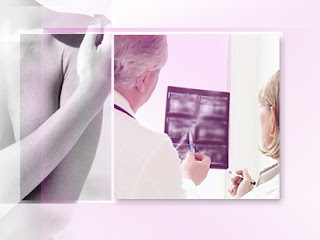Breast Cancer Gene Risk May Be Overstated
 The risk posed by certain gene mutations linked to breast cancer may be lower than commonly believed, a new study shows.
The risk posed by certain gene mutations linked to breast cancer may be lower than commonly believed, a new study shows.
Many women fear that breast cancer is inevitable if they are found to carry mutations in the genes BRCA1 and BRCA2. Genetic counselors and health organizations like the American Society of Breast Surgeons maintain that a woman has about an 80 percent lifetime risk of developing breast cancer if she carries one of the mutations.
But researchers at the Memorial Sloan-Kettering Cancer Center have found that a carrier’s risk of developing breast cancer by age 70 ranges from 36 percent to 52 percent, according to a report published today in the Journal of the American Medical Association.
The scientists studied about 2,000 women who had been diagnosed with cancer at the age 55 or younger. Some 181 carried mutations in either BRCA1 or BRCA2 genes, the team found. The researchers also gathered information on whether patients’ mothers, sisters and daughters also had been diagnosed with cancer, about half of whom would also carry BRCA mutations.
Risk was highest among the relatives of the women who were diagnosed at a young age. If a woman with a BRCA mutation was diagnosed at age 35 or younger, the scientists found, her first-degree relatives had a 52 percent chance of having been diagnosed with breast cancer by age 70 and 95 percent by age 80. But if a woman with a BRCA mutation was diagnosed at age 45 or older, her relatives had a 36 percent likelihood of breast cancer by age 70 and 44 percent by age 80.
And if a woman was diagnosed at any age with cancer in both breasts, her relatives also faced a markedly higher risk for the disease, the study showed.
What to make of all this? To be sure, the risk of developing breast cancer among women with BRCA mutations is far higher than the estimated 12 percent lifetime risk faced by the average woman. Some carriers even undergo prophylactic mastectomies, because they believe breast cancer is a foregone conclusion.
The new study suggests that the odds are surprisingly variable even for carriers of the mutations. The authors said the variation is likely due to as yet unidentified mutations that further influence the odds of breast cancer.
“There is a perception out there that all that matters is if you’re a carrier or not, and if you’re a carrier that you’re virtually certain to get breast cancer,’’ said Dr. Colin Begg, chairman of the department of epidemiology and biostatistics at Memorial Sloan-Kettering and lead author of the paper. “What I think is important is that when a woman makes decisions, she should make them fully informed of what her risks are really likely to be.’’


